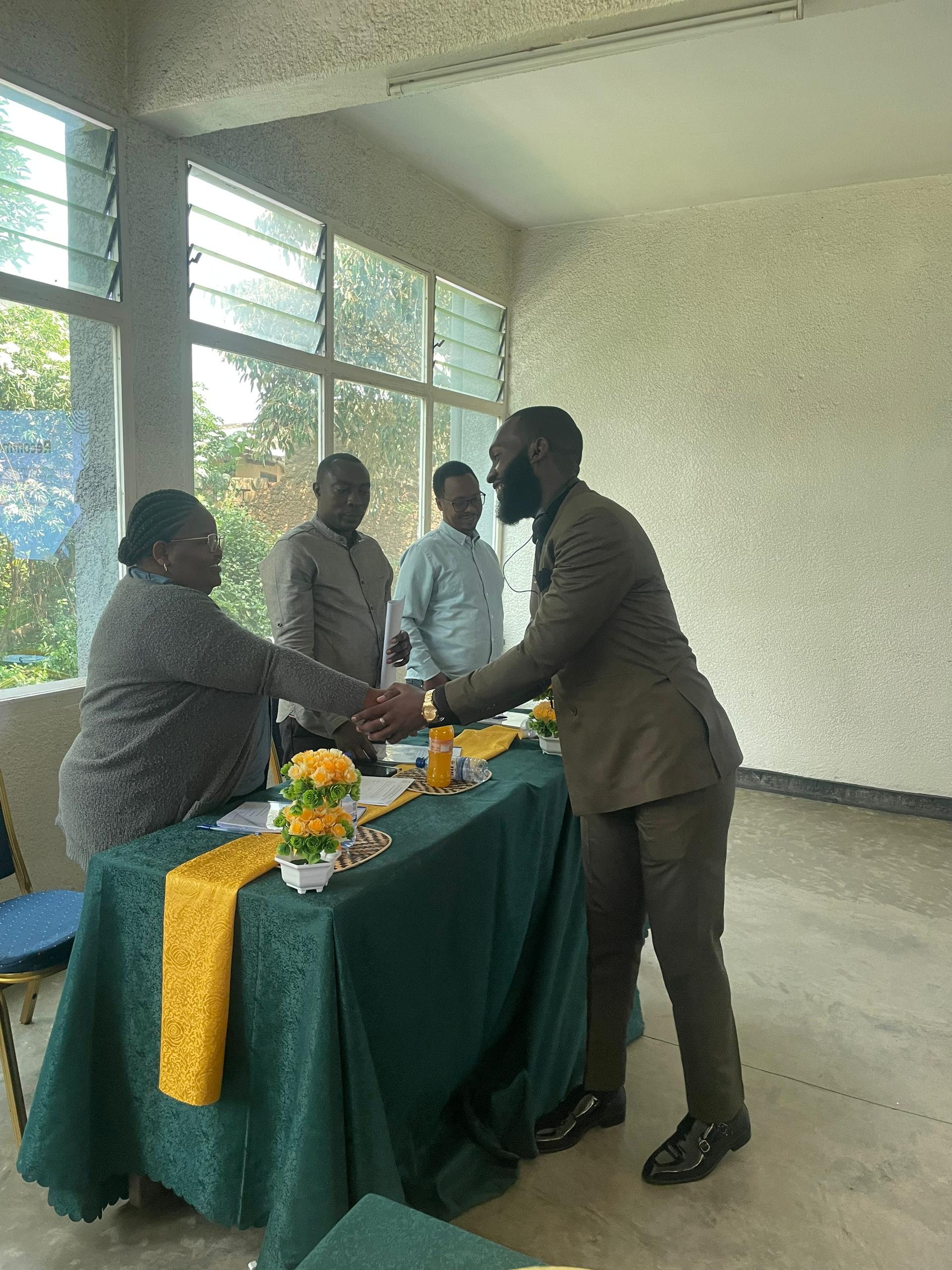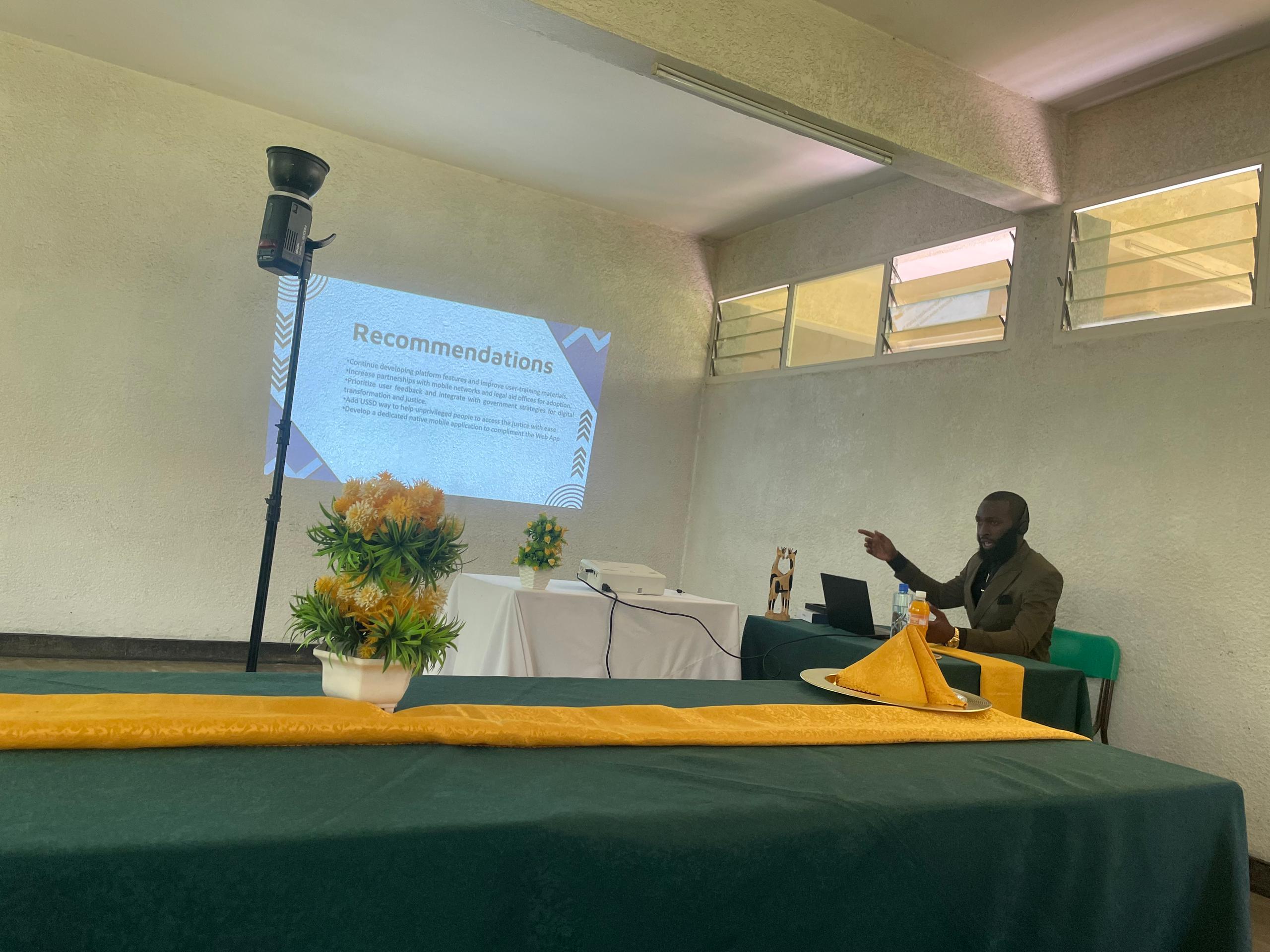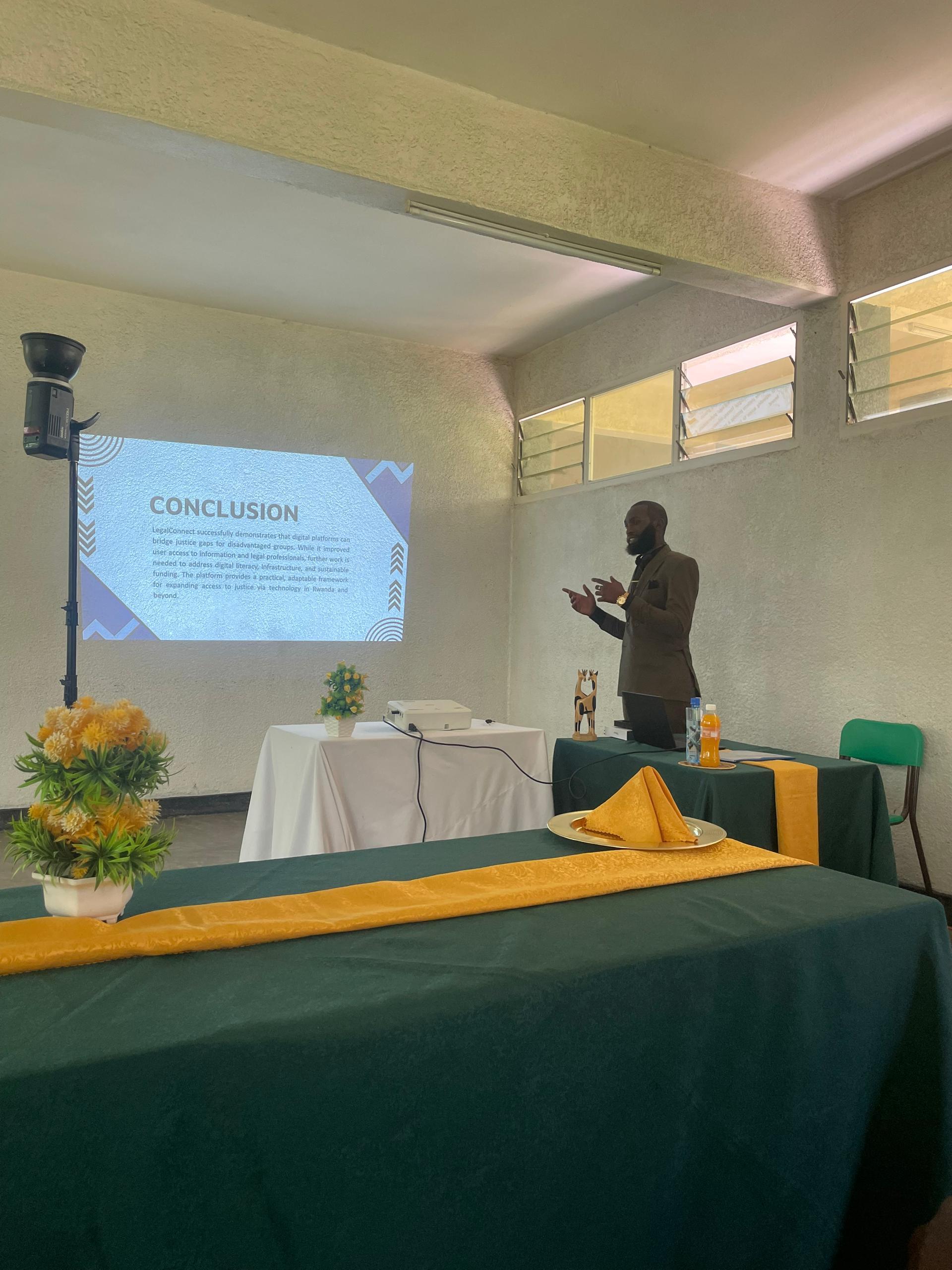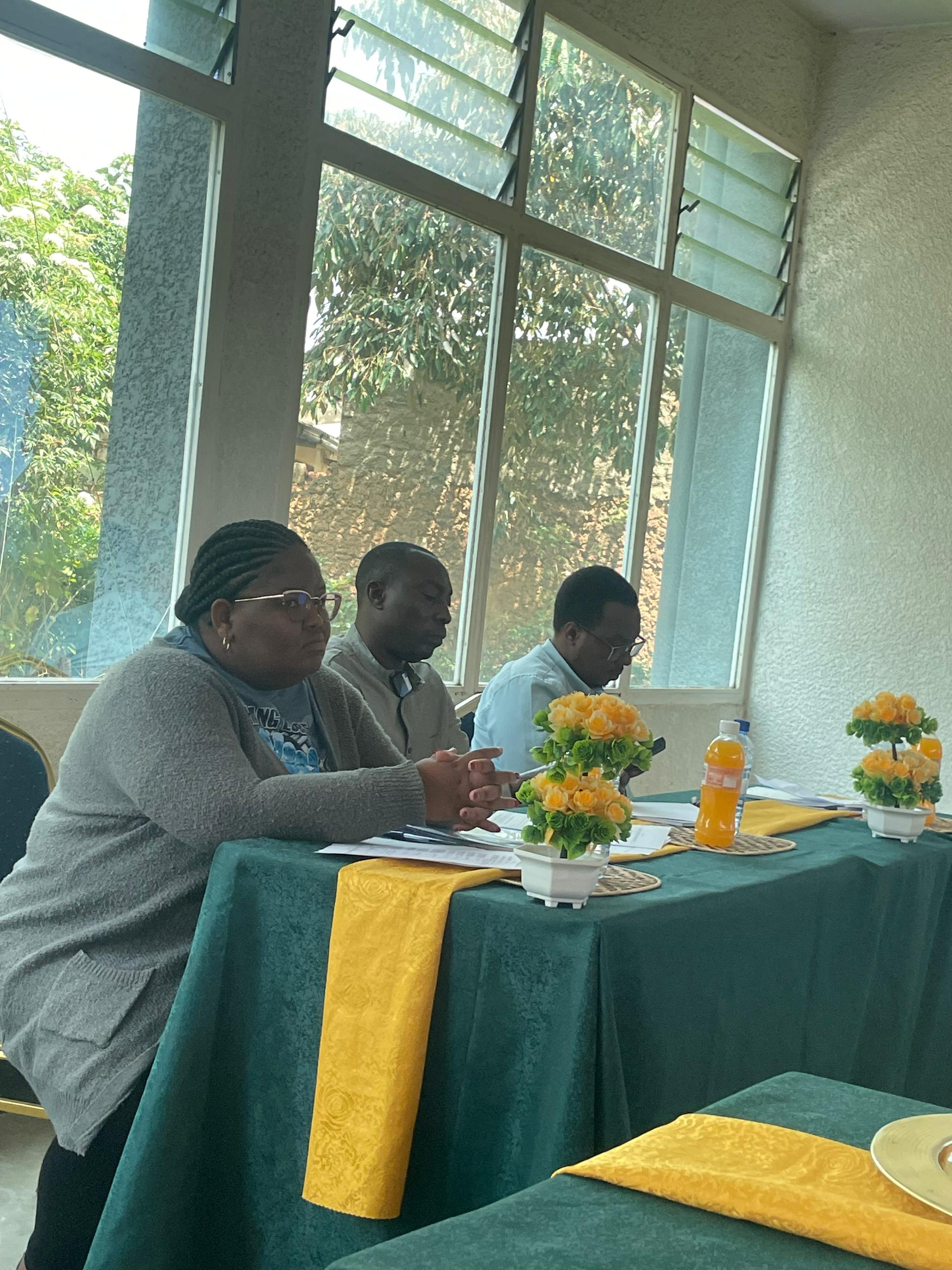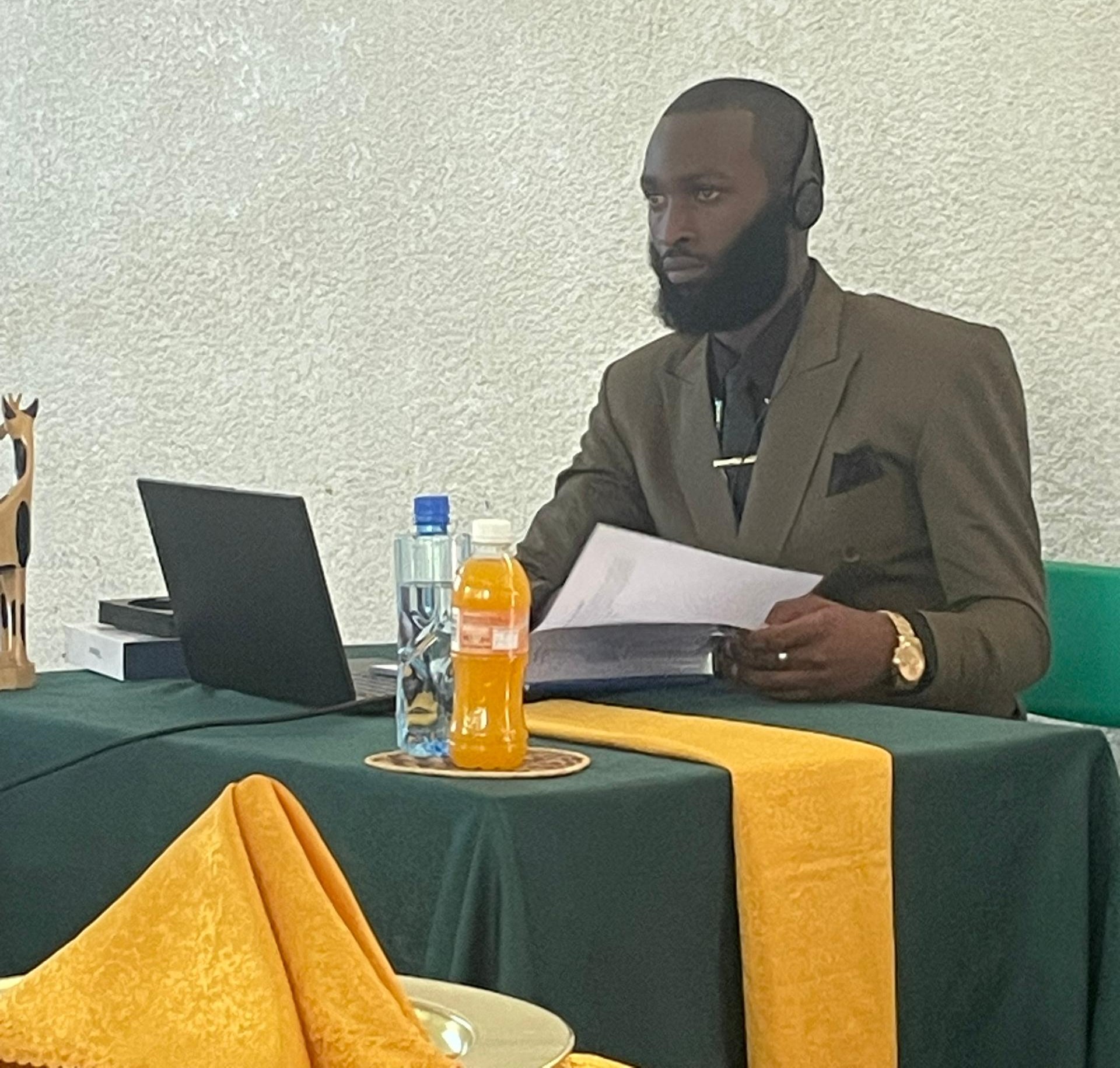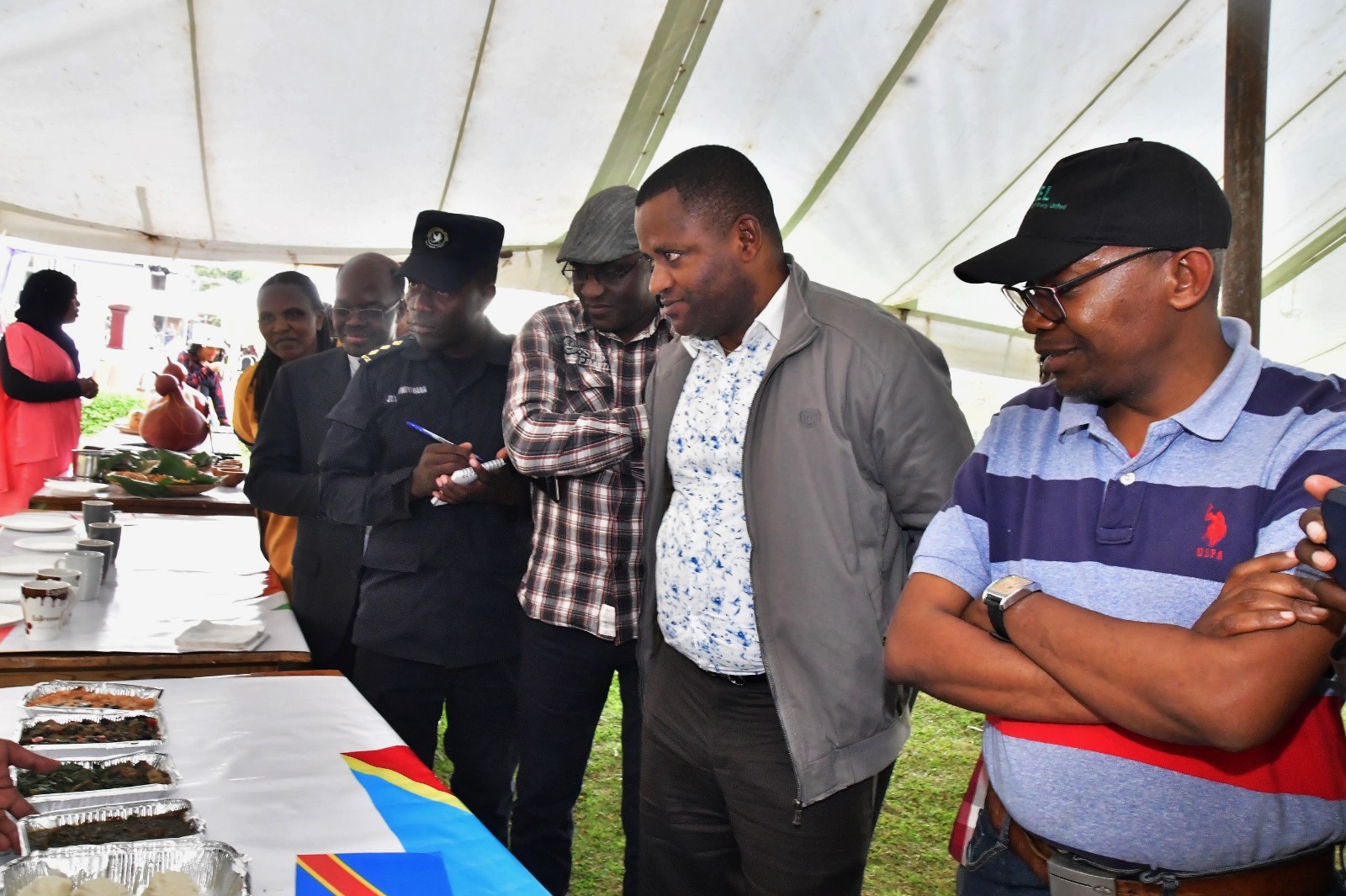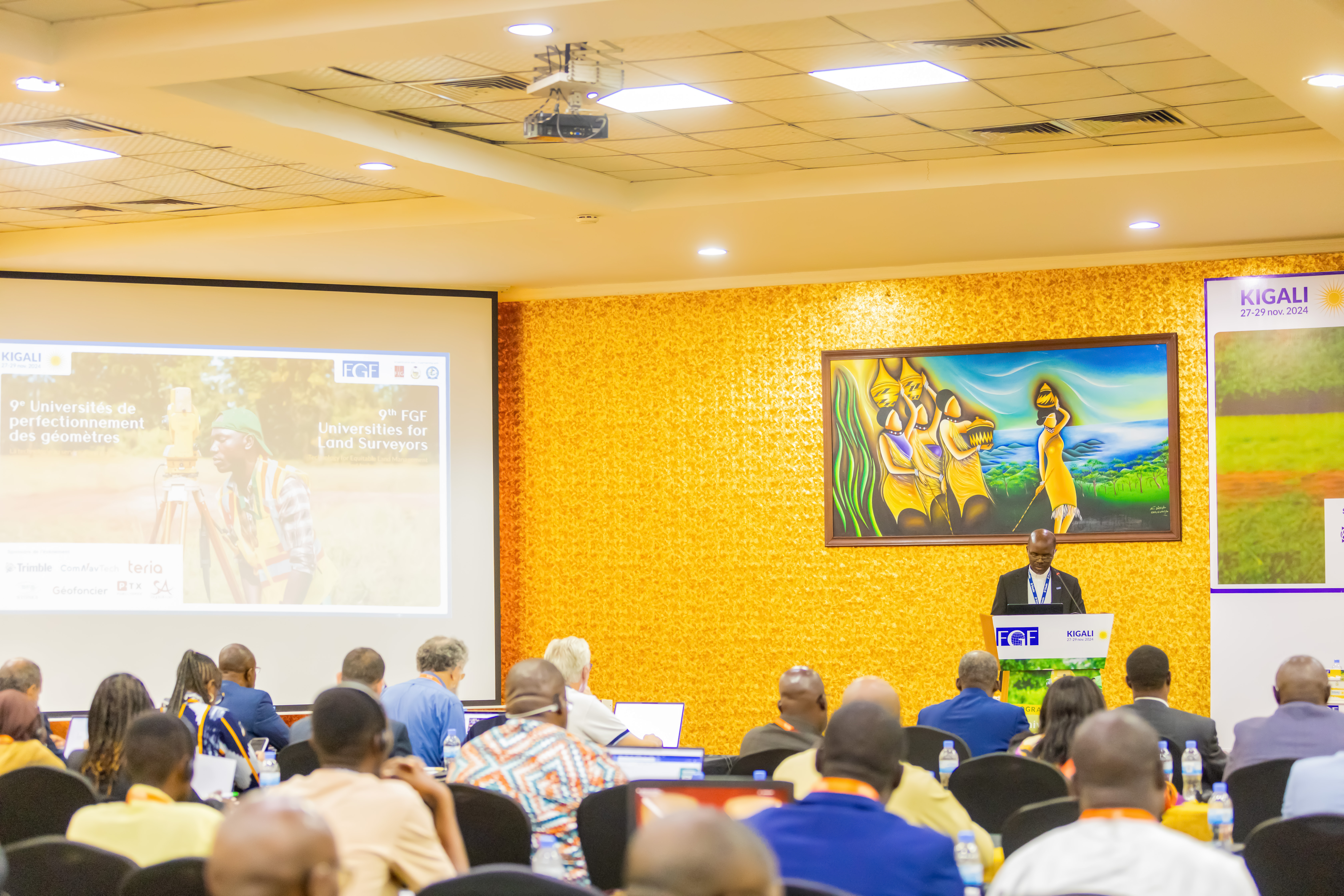Breaking the Silence: How Assistive Technology Gave Emmanuel a Voice in Defence
On 24th July 2025, in a quiet room at INES-Ruhengeri, a final-year student stood before a panel to defend his final project in Computer Science. For many, this moment is the culmination of years of study. For Emmanuel Uwanjye, it was also something more a first chance to truly be heard.
Emmanuel lives with a significant hearing impairment. Throughout his academic journey, he sat in lectures without hearing most of what was being taught. He relied solely on written materials, navigating assignments and exams in silence. Group discussions, classroom clarifications, verbal feedback, these passed him by.
But on the day of his defence, something was different.
Thanks to the Student Support Centre and the ANSWER Project, Emmanuel was equipped with assistive audio amplification technology, a simple tool that allowed him to hear, respond, and engage during one of the most important moments of his academic life.
“I wish I had found this earlier,” he said, a mix of relief and regret in his voice. “I spent years trying to catch up in silence.”
His gratitude was genuine. But his words also exposed a painful truth: the support Emmanuel needed had been available, just not visible.
Just days earlier, another student with hearing difficulties had also defended their final project. That student, however, struggled to answer questions, not because they lacked knowledge, but because they couldn’t clearly hear what was being asked. It was a moment that left both the student and the panel unsettled.
These two incidents brought new awareness to the Computer Science department. Faculty members who had previously heard of the Student Support Centre admitted they hadn’t realized how functional or equipped it already was.
This experience revealed something deeper: support is not only about availability, it’s about visibility and access.
There are likely more students like Emmanuel. Students sitting in lecture halls right now, struggling silently, not because they cannot learn, but because they are learning without the tools that could make it possible to thrive.
Assistive technology does more than amplify sound. It amplifies dignity, confidence, and belonging. It reminds us that inclusion is not a side project. It is a right.
Emmanuel’s story is not about being rescued. It is about resilience finally met with recognition. It is about systems catching up to students who have spent years adapting on their own.
Moving forward, there is a clear need for early awareness campaigns within departments both for students who need support and for staff who can help connect them. The Student Support Centre cannot be the university’s best-kept secret. It must be part of every student’s orientation, every staff meeting, and every classroom plan.
Because no student should discover help only at the finish line.
Because the tools Emmanuel used in his final defense could have changed his entire academic experience, if only he had known.
What the Student Support Centre Offers
The INES-Ruhengeri Student Support Centre (SSC) is dedicated to ensuring that every student regardless of disability or learning challenge has the tools and support needed to thrive academically and socially.
The Centre offers:
· Assistive technology, including audio amplification devices, screen readers, and magnification tools
· One-on-one academic support, including adapted materials and guidance for students with disabilities
· Awareness and training sessions for both staff and students to promote inclusive practices
· Referral and collaboration with departments to ensure appropriate accommodations during exams, presentations, and internships
· Confidential support services for students living with physical, sensory, or cognitive challenges
Through the ANSWER Project, the SSC continues to expand its impact. But its true power lies in early connection. The earlier a student or staff member engages with the Centre, the greater the opportunity for transformation.
The message is clear: help is here. But it must be seen, heard, and used.
